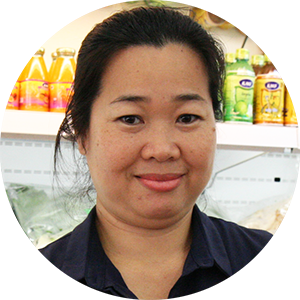
Ms. Thlang Sovann Pisey, Director of the Eco-Agri Co. Ltd. talks about agriculture in Cambodia and what change needs to be made to green Cambodia.
The idea behind
“It is Dr. Ieng Sotheara, our chairman’s passion to promote and increase the popularity of organic products, non-GMO products and biological agricultural inputs such as bio fertilizer and bio pesticide. He saw that most of the food we consume is unsafe. So, he questioned himself why don’t we grow safe food in our land? With the idea of growing safe food for Cambodian and encouragement from his friends, he decided to establish the Eco-Agri Co Ltd.
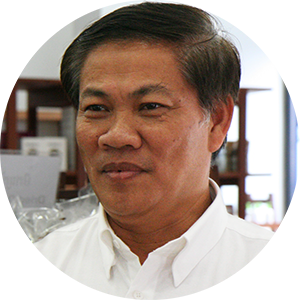
Dr. Sotheara wants to provide safe food to the consumers while at the same time helping the farmer community. He sees that chemical retailers in Cambodia try to gain profit from farmers by encouraging them to overuse chemical pesticide and fertilizer. Most farmers use chemical pesticide wrongly in practice which can contaminate the soil and decrease the quality of soil and nutrient. To the chairman, the traders and retailers are the challenges.
We need to reeducate both farmers and chemical retailers on environmental friendly agriculture practice and also how to produce safe food for our people and to promote the organic products among Cambodian consumers.”
The Eco-Agri Co. Ltd. receives technical assistance through a Public-Private Partnership with ASEAN Sustainable Agrifood Systems. It has the main office in the center of Phnom Penh jointly with other companies of the agricultural sector. The building is called the Eco-Agri Center.
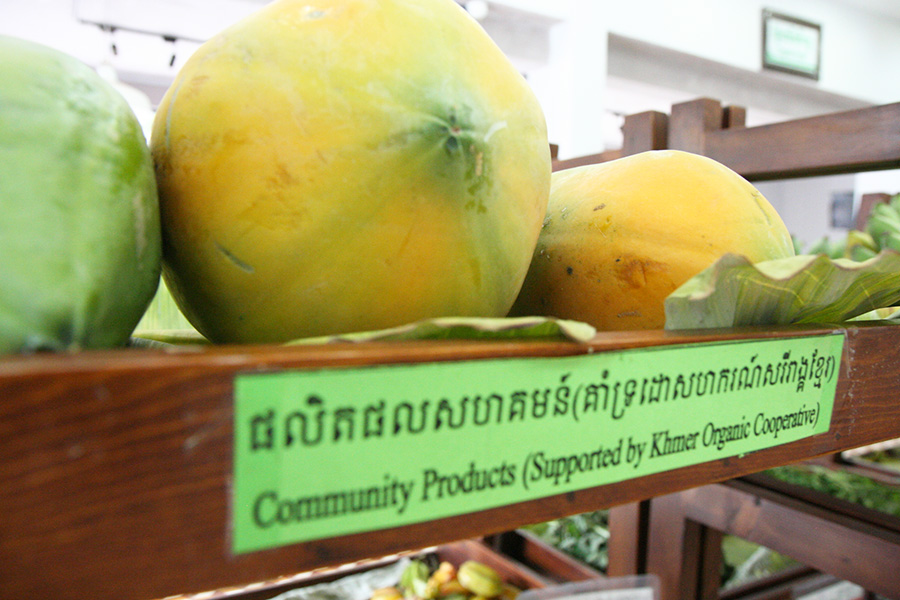
The Eco-Agri Center was opened in 25 March last year [2016]. It provides complete services to link organic farmers to markets. The center is connecting networks of biological input suppliers, knowledges, practitioners, farmers, and markets in order to fill the gap in the organic value chain needed to promote organic products. It trains farmers on organic farming at no charge, supply chemical-free products to eco-friendly production, and create market channels for healthy products.”
The challenges
“At the first stage of establishing the Eco-Agri Center, we have to supply with our own [financial] resources. This costs us a big fortune. It is a big investment with such a small return. We need a way to make our business survive sustainably in a long run. However, we enjoy doing our business and we never expect such big profit as long as we achieve our goal, which is the better health of people in Cambodia.
We still face a lot of challenges and still need to learn a lot in order to pave organic agricultural method in Cambodia.

There are two main problems that hinder Cambodia from achieving the green production. First is that small-holder farmers have very limited number of financial resource and receive limited education. Most farmers in Cambodia earn small income and will not be able to afford and apply organic and good practice of agriculture on their crop. We need to make them understand, help them, and change them step by step.
Second is that we lack of new farmer generation. Most children of farmers choose not to continue their parents’ career, instead, they move to the city or to the neighbor countries like Thailand to work in office and factories.”
Green agriculture and what we can promote
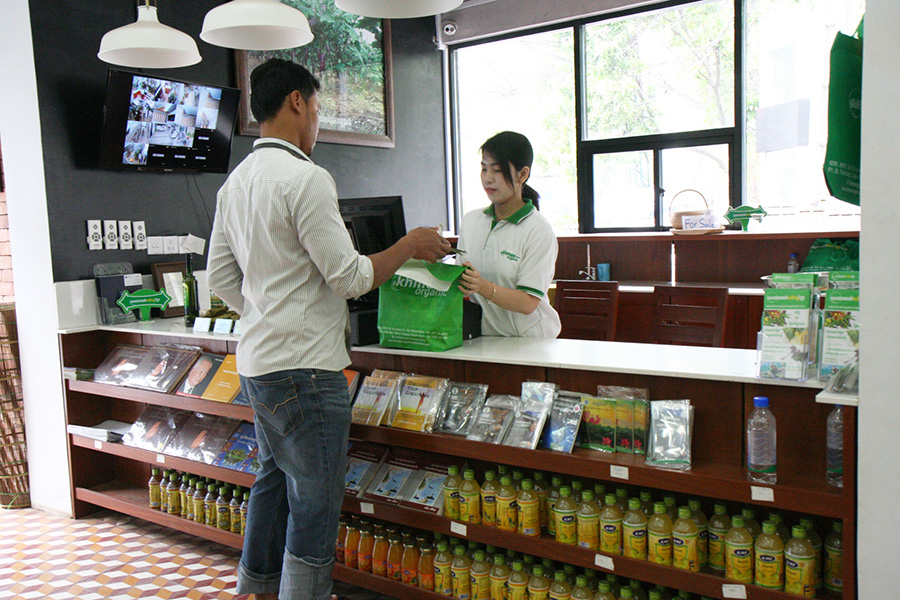
“We try to introduce Good Agricultural Practice (GAP) to the consumers with middle to lower income, so they can purchase safe food in a level they can afford. Meanwhile, we organize training for farmers introducing them and encouraging them to do organic farming.
The chairman, Dr. Sotheara, himself, too, spends most of his time with entrepreneur and farmer groups sharing knowledge. He visits Cambodian universities in order to build a network and arrange study tours for university students. Once, he visited a high school in Phnom Penh and saw a school field full of plastic bags. He then talked to the principle telling him his idea of converting it into green area. Fortunately, the principles listened to the chairman and applied his method into use. Today, the field is turned to the green soccer field and vegetable patches.”
The future plan
“A lot of things need to be developed. Our staffs need to be trained, so they can talk to the farmers and consumers with confidence. We need to find strategies to raise consumers’ interest and awareness in safe and clean food and the importance of organic agriculture.”
We also plan to launch exhibitions in each province of Cambodia and increase our promotional activities on media such as Facebook, leaflet, and video clip. Furthermore, we are planning on export our organic products to the neighbor countries like Thailand, Laos, and Vietnam. However, we will never abandon our main goals. The better living standard of the farmers and the Cambodian’s access to safe and clean food are still our top priority.”
Cambodian Agriculture
About 80 percent of the Cambodia’s population lives in rural areas and most of them are employed in agricultural activities. The agricultural production sector employs 56 percent of the labor force but accounts for 35 percent of Cambodia’s GDP. The main products from the sector are rice, rubber, corn, vegetables, cashews and cassava. Unprocessed agricultural exports were projected to be more than 90 percent of total agricultural exports in 2015. Agricultural gross production grew by 8.7 percent between 2004 and 2012, driven by crop production, mainly of paddy rice (annual growth of 9 percent), maize (20 percent), cassava (51 percent), sugarcane (22 percent), and vegetables (10 percent).
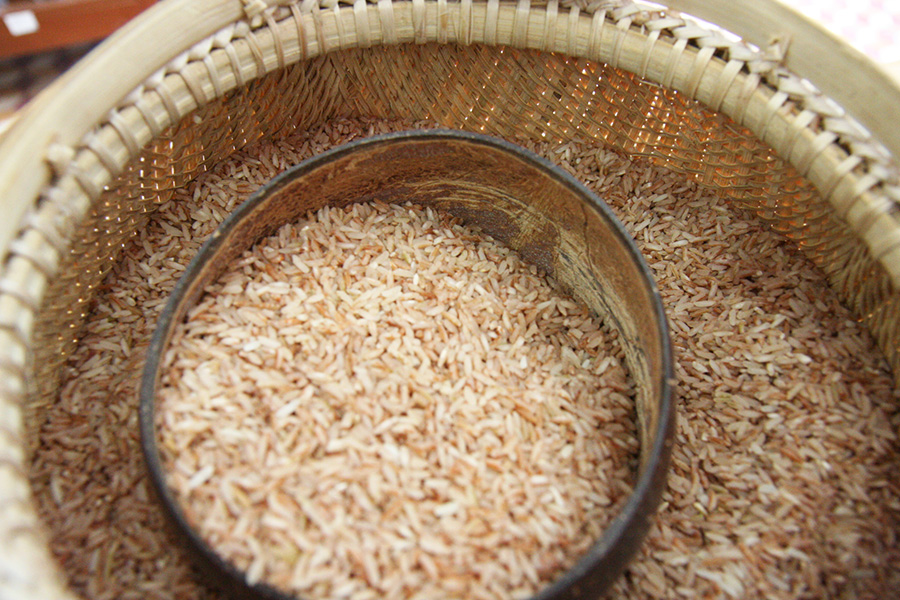
Even though crop production has increased significantly, the sector still faces a number of challenges. In light of a growing rural population that has to be fed and increasing food product exports (mainly for rice) it has become important that agricultural production and food processing correspond to certain ecological, economic and social sustainability criteria that are customary within international food production. While unified standards or control mechanisms are absent, usage of inappropriate chemical fertilizers remains persistently high posing serious health hazards to the rural population and consumers. In spite of several studies carried out to effectively showcase to the farmers the direct benefits of cutting down on chemical inputs (i.e. higher yield), awareness on the advantages of organic and good agricultural practices (GAP) is still low, also owing to the lack of vocational trainings and consistent knowledge transfer mechanism among farmers. Upon the limited circumstances, it is also difficult to develop market linkages for small-holder farmers.
By Thitirat Uraisin and Rojana Manowalailao, ASEAN Sustainable Agrifood Systems